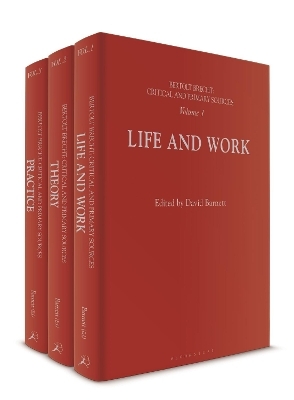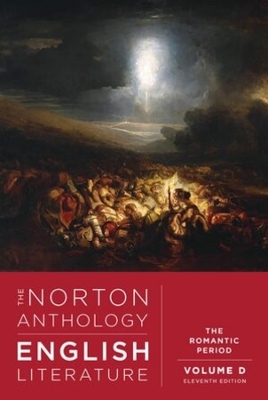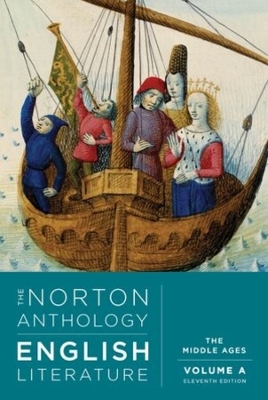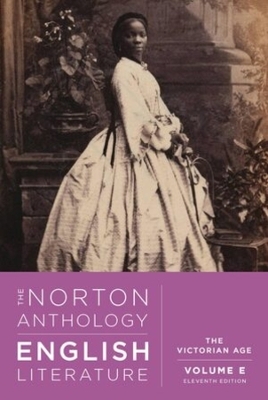
Bertolt Brecht
Bloomsbury Academic
978-1-4742-9949-7 (ISBN)
Alongside primary sources that include writings by Brecht published in English for the first time, such as his short but important reflection in ‘originality’ in theatre production, key featured scholars include Fredric Jameson and his essay ‘Episch, or, the Third Person’, and pieces on Brecht’s collaborative working methods by Claus and Wera Küchenmeister, and the director Egon Monk.
Volume 1 covers Brecht's life and work, including essays on his famous Mother Courage and Her Children, production reviews, poetry, novels and short stories, with some thoughts on his journals.
Volume 2 covers theory, containing essays and primary writings on Brechtian terminology, and some of the more enigmatic terms like ‘Epic theatre’, ‘Verfremdung’, ‘Gestus’ and ‘Fabel’, features a survey of important theoretical works, a section on Brecht on non-theatre media, his relationship to other major thinkers, ideas and sources and the reception of his ideas.
Volume 3 covers practice, including Brecht’s practice as documenter and director, beginning with his disastrous start in the Weimar Republic through to his later role as director as the Berliner Ensemble, his relationships with other practitioners and his own collaborators, reviews of important productions and global receptions.
Each volume includes a contextualizing introduction surveying the topics covered and the development of scholarship on Brecht.
David Barnett is Professor of Theatre at the University of York, UK. He is the author of A History of the Berliner Ensemble (2015), Brecht in Practice: Theatre, Theory and Performance (Bloomsbury Methuen Drama, 2014), Rainer Werner Fassbinder and the German Theatre (2005) and a monograph on Heiner Müller (1998). He has written several articles and essays on German-, English-language, political and postdramatic theatre.
Volume One: Life and Work
Life
The young Brecht
1. Werner Frisch and K.W. Obermeier, ‘Schülerzeitung Die Ernte’, in Frisch and Obermeier, Brecht in Augsburg. Erinnerungen, Dokumente, Texts, Fotos (Frankfurt/Main: Suhrkamp, 76)
2. Tom Kuhn, ‘“Ja, damals waren wir Dichter”: Hanns Otto Münsterer, Bertolt Brecht and the Dynamics of Literary Friendship, Brecht Yearbook, 21 (1996)
Brecht and the Weimar Republic
3. Philip Glahn, ‘Sachlichkeit’, in Glahn, Bertolt Brecht (London: Reaktion, 2014)
Brecht in Exile
4. James K. Lyon, ‘“Changing Countries More Often Than Shoes’, in Lyon, Bertolt Brecht in America (London: Methuen, 1982)
Brecht in the GDR
5. Stephen Parker, ‘A Life’s Work Curtailed? The Ailing Brecht’s Struggle with the SED Leadership over GDR Cultural Policy’, in Laura Bradley and Karen Leeder (eds.), Brecht and the GDR. Politics, Culture, Posterity (Rochester NY: Camden House, 2011)
6. Brecht, ‘[Eigenarten des Berliner Ensembles 2], in Brecht, Schriften, vol. 3 (Berlin and Frankfurt/Main: Aufbau and Suhrkamp, 1993)
Work
Plays:
Early/Weimar work
7. R. C. Speirs, ‘Brecht's Plays of the Weimar Period’, in Alan F. Bance, (ed.), Weimar Germany: Writers and Politics (Edinburgh: Scottish Academic Press, 1982)
8. Herbert Ihering, ‘[Review of Drums in the Night]’, in Monika Wyss, Brecht in der Kritik (Munich: Kindler, 1977)
9. Monty Jacobs, ‘[Review of The Threepenny Opera]’ , in Monika Wyss, Brecht in der Kritik (Munich: Kindler, 1977)
The Lehrstücke
10. Brecht, ‘Zur Theorie des Lehrstücks’, in Brecht, Schriften, vol. 2 (Berlin and Frankfurt/Main: Aufbau and Suhrkamp, 1993)
11. Andrzej Wirth, ‘The Lehrstück as Performance’, The Drama Review, 43: 4 (1999)
12. Durus, ‘[Review of The Measures Taken’], in Monika Wyss, Brecht in der Kritik (Munich: Kindler, 1977)
Exile
13. Brecht, ‘Thesen für proletarische Literatur’, in Brecht, Schriften, vol. 2 (Berlin and Frankfurt/Main: Aufbau and Suhrkamp, 1993)
14. Ehrhard Bahr, ‘Brechts Episches Theater als Exiltheater’, in Alexander Stephan, (ed.); Hans Wagener, (ed.), Schreiben im Exil: Zur Ästhetik der deutschen Exilliteratur 1933-1945 (Bonn: Bouvier, 1985)
15. Hans Ott, ‘[Review of Mother Courage and her Children]’ , in Monika Wyss, Brecht in der Kritik (Munich: Kindler, 1977)
Return to Germany/Adaptations
16. David Barnett, ‘Adaptations for the Berliner Ensemble’, in Brecht, Berliner Ensemble Adaptations (London: Bloomsbury, 2014)
17. Gerhard Wahnrau, ‘[Review of Mother Courage and her Children]’ , in Monika Wyss, Brecht in der Kritik (Munich: Kindler, 1977)
18. Franz Schonauer, ‘[Review of Coriolan]’ , in Monika Wyss, Brecht in der Kritik (Munich: Kindler, 1977)
Fragments
19. Judith Wilke, ‘The Making of a Document: An Approach to Brecht's "Fatzer" Fragment’, TDR 43: 4 (1999)
Poetry:
City poems
20. David Midgely, ‘The Poet in Berlin: Brecht’s City Poetry of the 1920s’, in Tom Kuhn and Karen Leeder (eds), Empedocles’ Shoe (London: Methuen, 2002)
Exile poems
21. Tom Kuhn, ‘“Visit to a Banished Poet”: Brecht's Svendborg Poems and the Voices of Exile’ in Ronald Speirs (ed.), Brecht's Poetry of Political Exile (Cambridge: Cambridge UP; 2000)
Sonnets
22. David Constantine, ‘Brecht’s Sonnets’, in Tom Kuhn and Karen Leeder (eds), Empedocles’ Shoe (London: Methuen, 2002)
Later poetry
23. Karl H. Schoeps, ‘Brecht in Buckow: The Buckow Elegies’, Germanic Review, 61, 4 (1986)
Prose:
The novels
24. Klaus-Detlef Müller, ‘Der nichtaristotelische Roman: Brechts Beitrag zum Roma der klassischen Moderne’, in Robert Gillett and Godela Weiss-Sussex (eds.), “Verwisch die Spuren!”. Bertolt Brecht’s Work and Legacy. A Reassessment (Amsterdam: Rodopi, 2008)
The short stories
25. Sonia Arribas, ‘The Subject Herr Keuner: Towards a Brechtian Ethics’, Brecht Yearbook, 35 (2010)
Volume Two: Theory
Negotiating terminology
Epic
1. Fredric Jameson, ‘Episch, or, the Third Person’, in Jameson, Brecht and Method (London: Verso, 1998)
Dialectics
2. David Barnett, ‘Dialectics and the Brechtian Tradition’, Performance Research, 21:3 (2016)
Verfremdung
3. Brecht, ‘Verfremdung bestimmter Vorgänge durch eine Darstellungsart, die sonst Sitten und Gebräuche erfahren würden’, in Brecht, Schriften, vol. 2 (Berlin and Frankfurt/Main: Aufbau and Suhrkamp, 1993)
4. Anthony Squiers, ‘A Critical Response to Heidi M. Silcox’s “What’s Wrong with Alienation?”’, Philosophy and Literature, 39: 1 (2015)
Gestus
5. Meg Mumford, ‘Getting the Gist of Gestus’, in Mumford, Showing the Gestus, unpublished PhD thesis, University of Bristol, 1997
Fabel
6. Brecht, ‘[Die Fabel]’, in Brecht, Schriften, vol. 3 (Berlin and Frankfurt/Main: Aufbau and Suhrkamp, 1993)
7. Craig Kinzer, ‘Brecht, the “Fable”, and the Teaching of Directing’, Brecht Yearbook, 16 (1991)
Historicization
8. Astrid Oesmann, ‘Art as the Speaker of History’, in Oesmann, Staging History (Albany NY: State University of New York, 2005)
9. Brecht, ‘Wie lerne ich das Lernen?’, in Brecht, Schriften, vol. 2 (Berlin and Frankfurt/Main: Aufbau and Suhrkamp, 1993)
Naivety
10. Karl-Heinz Schoeps, ‘From Distancing Alienation to Intuitive Naiveté: Bertolt Brecht’s Establishment of a New Aesthetic Category’, Monatshefte, 81: 2 (1989)
Major theoretical writings
11. John J. White, ‘On the Sociology of Opera’ (pp. 31-50) and ‘Scheming Brecht’ (pp. 50-66), in White, Bertolt Brecht’s Dramatic Theory (Rochester NY: Camden House, 2004).
The Messingkauf/Buying Brass
12. Martin Puchner, The drama of ideas : platonic provocations in theater and philosophy
(New York and Oxford: Oxford University Press, 2010)
Me-ti
13. Antony Tatlow, ‘Introduction’ in Bertolt Brecht's Me-ti: Book of Interventions in the Flow of Things - to be edited by David Barnett
Theatre Work
14. Detlev Schöttker, ‘Brechts Theaterarbeit: Ein Grundlagenwerk und seine Ausgrenzungen’, Weimarer Beiträge, 53: 3 (2007)
Brecht and other media
Radio
15. Patrick Primavesi, ‘Apparat ohne Zuschauer? Zur Dekonstruktion des Mediums in Brechts Ozeanflug’, Brecht Yearbook, 24 (1999)
Film
16. Angelos Koutsourakis, ‘Utilizing the “Ideological Antiquity”: Rethinking Brecht and Film Theory’ Monatshefte, 107: 2 (2015)
Music
17. Kim H. Kowalke, ‘Brecht and Music: Theory and Practice’, in Peter Thomson and Glendyr Sacks (eds.), The Cambridge Companion to Brecht, second edition (Cambridge: CUP, 2006)
Brecht in the information age
18. Dorothee Ostmeier, ‘Bertolt Brecht and the Internet’, Brecht Yearbook, 26 (2001)
The play of ideas
The Bible
19. G. Ronald Murphy, Brecht and the Bible: A Study of Religious Nihilism and Human Weakness in Brecht's Drama Mortality and the City (Chapel Hill: U of North Carolina P, 1980)
Shakespeare
20. David Barnett, ‘Brecht as Great Shakespearean: A Lifelong Connection’, in Ruth Morse (ed.), Great Shakespeareans, vol. 14 (London: Bloomsbury, 2013)
Marxism, Productivity and Usefulness
Capitalism
21. Oesmann, Astrid, ‘Tracing the crimes of capitalism: from Mahagonny to Nazi Germany’, Brecht Yearbook, 29 (2004)
The natural sciences
22. Katharina Brinkert, ‘Brecht und die Naturwissenschaften – die Naturwissenschaften und Brecht?’, in Christian Hippe and Volker Ißbrucker (eds.), Brecht und Naturwissenschaften (Berlin: Verbrecher, 2017)
Thought from the Far East
23. Markus Wessendorf, ‘Brecht’s Materialist Ethics between Confucianism and Mohism’ Philosophy East and West, 66: 1 (2016)
Genre:
Comedy/humour
24. Ralf Simon, ‘Zur poetisches Anthropologie der Komödie in Brechts Messingkauf’, Brecht Yearbook, 24 (1999)
25. Brecht, ‘On Humour’, in Brecht, Bertolt Brecht’s Me-ti (London: Bloomsbury, 2016)
Tragedy
26. Sean Carney, ‘Modern Tragedy’ and ‘Brechtian Tragedy’, in Carney, Brecht and Critical Theory (London: Routledge, 2005)
Gendered performance/feminism
27. Elin Diamond, ‘Brechtian Theory/ Feminist Theory: Toward a Gestic Feminist Criticism’, TDR 32: 1 (1988)
Post-colonial Brecht
28. Marc Silberman, ‘A Postcolonial Brecht?’, Brecht Yearbook, 36 (2011)
Volume Three: Practice
Brecht as theatre director and documenter
Weimar Republic
1. Edward Braun, ‘Brecht’s Formative Years’, in Braun, The Director and the Stage (London: Methuen, 1982)
Switzerland/GDR/Berliner Ensemble
2. Bruno C. Duarte, ‘Rhythm and Structure: Brecht’s Antigone in performance’, Performance Philosophy, 2: 2 (2017) online
3. Brecht, ‘[Originale Auffassungen zu Brechtstücken]’, in Brecht, Schriften, vol. 3 (Berlin and Frankfurt/Main: Aufbau and Suhrkamp, 1993)
4. David Barnett, ‘Undogmatic Marxism. Brecht as Director at the Berliner Ensemble’, in Laura Bradley and Karen Leeder (eds.), Brecht and the GDR. Politics, Culture, Posterity (Rochester NY: Camden House, 2011)
Brecht and the actor
5. Brecht, ‘Anweisungen and die Schauspieler’, in Brecht, Schriften, vol. 2 (Berlin and Frankfurt/Main: Aufbau and Suhrkamp, 1993)
6. John Rouse, ‘Brecht and the Contradictory Actor’, Theatre Journal, 36: 1 (1984)
Brecht and documentation
Modelbooks
7. Kristopher Imbrigotta, ‘Couragemodell: Detail and Arrangement of a Model Book’, in Imbrigotta, Framing Brecht: Photography and Experiment in the Modellbücher, ‘Arbeitsjournale’, and ‘Kriegsfibel’, unpublished PhD thesis, University of Madison, Wisconsin
8. Photography/the image
Tom Kuhn, ‘Was besagt eine Fotografie?’ Early Brechtian Perspectives on Photography’, Brecht Yearbook, 31 (2006)
Brecht’s relationships with practitioners
Erwin Piscator
Caspar Neher
9. Susanne de Ponte, ‘Stilmittel einer Bühne Caspar Nehers für das epische Theater von Brecht’, in de Ponte, Caspar Neher. Bertolt Brecht. Eine Bühne für das epische Theater (Munich: Henschel, 2006)
Helene Weigel
10. Brecht, ‘Helene Weigel’, in Brecht, Schriften, vol. 2 (Berlin and Frankfurt/Main: Aufbau and Suhrkamp, 1993)
11. Patrick Primavesi, ‘Gestalt und Entstaltung der Weigel in Texten Brechts’, Brecht Yearbook, 25 (2000)
Karl Korsch
12. Douglas Kellner, ‘Brecht's Marxist Aesthetic: The Korsch Connection’, Betty Nance Weber, Hubert Heinen, Iring Fetscher, and Frank Trommler, Bertolt Brecht: Political Theory and Literary Practice (Athens; U of Georgia P; 1980)
Walter Benjamin
13. Erdmut Wizisla, ‘Walter Benjamin und Bertolt Brecht: Bericht über eine Konstellation’, in Robert Gillett and Godela Weiss-Sussex (eds.), “Verwisch die Spuren!”. Bertolt Brecht’s Work and Legacy. A Reassessment (Amsterdam: Rodopi, 2008)
Kurt Weill
14. Michael Morley, ‘“Suiting the Action to the Word”: Some Observations on Gestus and Gestische Musik’, in Kim H. Kowalke (ed.), A New Orpheus: Essays on Kurt Weill (New Haven: Yale UP, 1986)
Hanns Eisler
15. Albrecht Dümling, ‘Eisler/Brecht oder Brecht/Eisler?’, in Albrecht Riethmüller (ed.), Brecht und seine Komponisten (Laaber: Laaber, 2000)
Paul Dessau
16. Paul Dessau and Hella Freud Bernays, ‘Composing for BB: Some Comments’, TDR, 12: 2 (1968)
Brecht’s female collaborators
17. Sabine Kebir, ‘Opferhaltung oder Tarnung? Die Bescheidenheit der Elisabeth Hauptmann’, in Kebir, Ich fragte nicht nach meinem Anteil. Elisabeth Hauptmanns Arbeit mit Bertolt Brecht (Berlin: Aufbau, 1997)
18. Wolfgang Jeske, ‘“...jetzt habe ich ihm wieder Flöhe ins Ohr gesetzt”: Anmerkungen zu Margarete Steffin, “Hauslektorin” bei Brecht’, Brecht Yearbook, 19 (1994)
19. Grischa Meyer, ‘Berlau fotografiert bei Brecht--eine Zusammenarbeit (mehr oder weniger)’, Brecht Yearbook, 30 (2005)
Brecht’s assistants in the theatre
20. Brecht, ‘Aushang [3]’, in Brecht, Schriften, vol. 3 (Berlin and Frankfurt/Main: Aufbau and Suhrkamp, 1993)
21. Interviews with Claus and Wera Küchenmeister and with Egon Monk, in Joachim Lang and Jürgen Hillesheim (eds.), “Denken heißt verändern…”. Erinnerungen an Brecht (Augsburg: Maro, 1997)
Global Brecht
Europe
22. David W. Price, ‘The Politics of the Body: Pina Bausch's “Tanztheater”’, Theatre Journal, 42: 3 (1990)
23. Agnieszka Karch, ‘Theatre for the People: The Impact of Brechtian Theory on the Production and Performance of 1789 by Ariane Mnouchkine’s Theatre du Soleil’, Opticon1826, 10 (2011), online
Asia
24. Antony Tatlow, ‘Brecht's East Asia’, Brecht Yearbook, 36 (2011)
25. Amal Allana, ‘Brecht: A Participant in the Process of Nation-Building’, Brecht Yearbook, 36 (2011)
Africa
26. Brian Crow, ‘African Brecht’, Research in African Literatures, 40: 2 (2009)
North America
27. Peter W. Ferran, ‘New Measures for Brecht in America’, Theater,; 25: 2 (1994)
South America
28. Diane Taylor, ‘Brecht and Latin America's “Theatre of Revolution”’, in Carol Martin and Henry Bial (eds.), Brecht Sourcebook (London: Routledge, 2000)
29. Steven K. Smith, ‘Activist theater: from Brecht through Boal’, Brecht Yearbook, 30 (2005)
| Erscheint lt. Verlag | 16.4.2020 |
|---|---|
| Reihe/Serie | Critical and Primary Sources |
| Verlagsort | London |
| Sprache | englisch |
| Gewicht | 2250 g |
| Themenwelt | Kunst / Musik / Theater ► Film / TV |
| Kunst / Musik / Theater ► Theater / Ballett | |
| Schulbuch / Wörterbuch ► Lexikon / Chroniken | |
| Geisteswissenschaften ► Sprach- / Literaturwissenschaft ► Anglistik / Amerikanistik | |
| Geisteswissenschaften ► Sprach- / Literaturwissenschaft ► Literaturwissenschaft | |
| ISBN-10 | 1-4742-9949-0 / 1474299490 |
| ISBN-13 | 978-1-4742-9949-7 / 9781474299497 |
| Zustand | Neuware |
| Haben Sie eine Frage zum Produkt? |
aus dem Bereich


